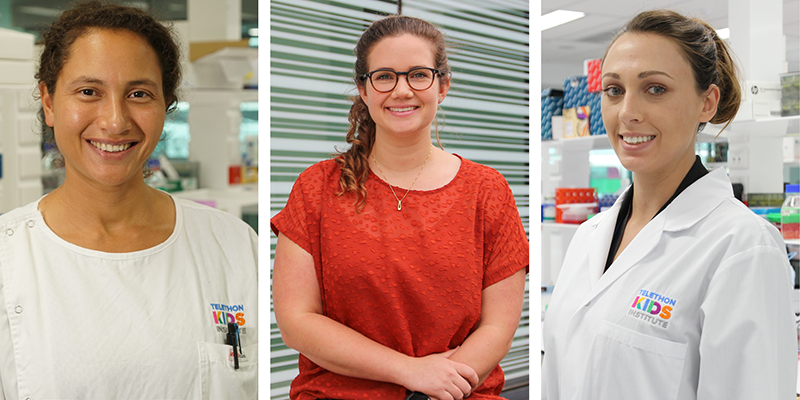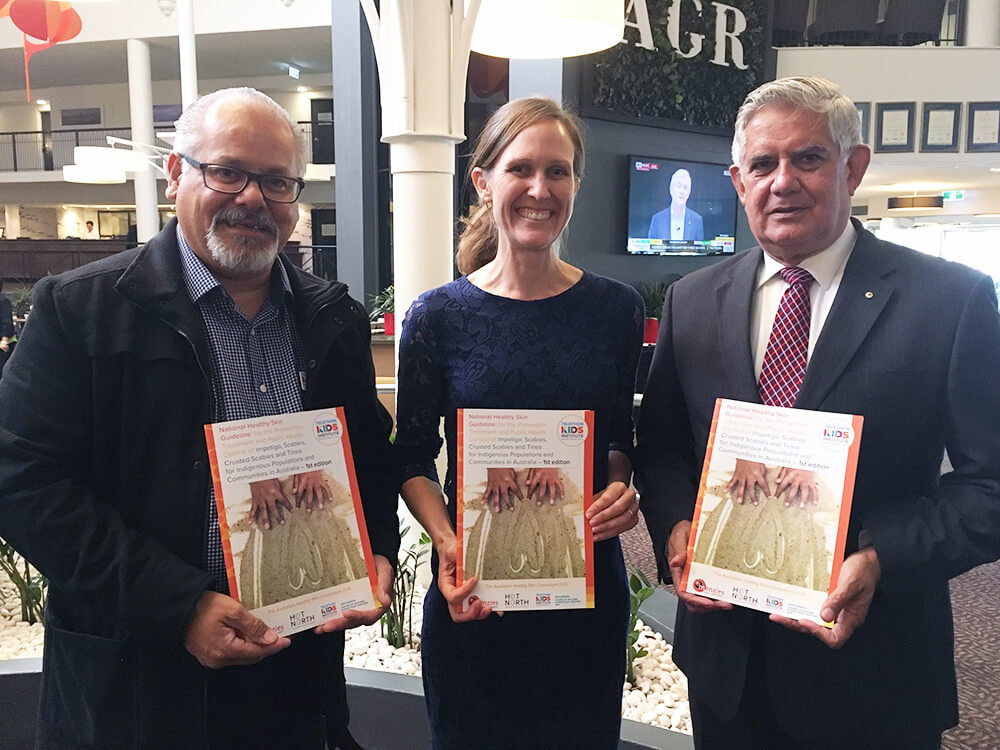Search
Research
InfluenzaInfluenza (commonly known as the flu) is caused by a highly contagious virus spread mainly through coughing and sneezing. An annual flu vaccination is the most effective way to prevent flu outbreaks.

News & Events
Raine Foundation grants to support key child health researchThree outstanding young researchers from The Kids Research Institute Australia have been named Raine Fellows and received valuable Raine Priming Grants to support their child health research.

News & Events
National guideline to tackle record rates of skin infectionResearchers have developed the first National Healthy Skin Guideline to address record rates of skin infections in Australia’s Indigenous communities.

News & Events
Co-ordinated approach urgently required to slow progression of antibiotic resistanceAboriginal mum and child

News & Events
Pneumococcal vaccine sees hospital admissions for deadly pneumonia slashed by halfThousands of children born in Papua New Guinea (PNG) no longer face a future cut short by severe pneumonia, thanks to the introduction of pneumococcal vaccination as part of the country’s National Immunisation Program.
Research
Effectiveness of nirsevimab in preventing RSV-hospitalisation among young children in Western Australia 2024Respiratory Syncytial Virus (RSV) causes a significant burden of illness for children under 2 years of age. Nirsevimab, a long-acting monoclonal antibody, was registered for RSV prevention in Australia in 2023. In April 2024, Western Australia (WA) launched the country's first state-wide nirsevimab program for all infants and high-risk children entering their second RSV season.
Research
Validity of using a semi-automated screening tool in a systematic review assessing non-specific effects of respiratory vaccinesThe abstract screening process of systematic reviews can take thousands of hours by two researchers. We aim to determine the reliability and validity of Research Screener, a semi-automated abstract screening tool within a systematic review on non-specific and broader effects of respiratory vaccines on acute lower respiratory infection hospitalisations and antimicrobial prescribing patterns in young children.
Research
Outbreak investigation of norovirus gastroenteritis in a childcare facility in Central Queensland, Australia: a household level case series analysisNoroviruses are one of the most common causes of gastroenteritis in all age groups, including children. However, little has been reported on the transmission of norovirus within childcare facilities and the subsequent impact at the household level.
Research
Global participatory wastewater surveillance to understand mpox clade diversity in war and conflict-affected countriesWar and conflict severely disrupt public health systems, compromising infectious disease surveillance in many affected regions. Mpox, a re-emerging zoonotic disease, poses a growing global threat, especially in areas where traditional monitoring is inaccessible.The mpox virus has distinct clades with varying transmission and severity.
Research
The application of environmental health assessment strategies to detect Streptococcus pyogenes in Kimberley school classroomsChildren spend almost one-third of their waking hours at school. Streptococcus pyogenes (Strep A) is a common childhood bacterial infection that can progress to causing serious disease. We aimed to detect Strep A in classrooms by using environmental settle plates and swabbing of high-touch surfaces in two remote schools in the Kimberley, Western Australia.
